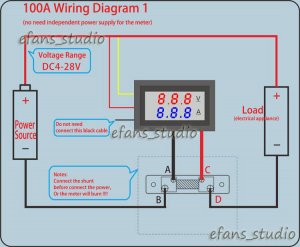Hello all,
Saw a digital voltmeter/ammeter combo on Amazon for something like $20. My SS12 didn't have an ammeter when I got it, and definitely wanted to add one to keep an eye on my charging system. I kinda like the idea of being able to monitor volts and amps digitally vs. trying to guess what an analog ammeter is reading on a -30 to +30 scale. I've never been around these Delco/Remy systems much, but it seems like you have to keep a close eye on things so they don't go south on you.
Should I stick with an analog gauge, or perhaps try a digital unit?
Anybody have or try one?
Any opinions?
Thanks,
bobcat2
Saw a digital voltmeter/ammeter combo on Amazon for something like $20. My SS12 didn't have an ammeter when I got it, and definitely wanted to add one to keep an eye on my charging system. I kinda like the idea of being able to monitor volts and amps digitally vs. trying to guess what an analog ammeter is reading on a -30 to +30 scale. I've never been around these Delco/Remy systems much, but it seems like you have to keep a close eye on things so they don't go south on you.
Should I stick with an analog gauge, or perhaps try a digital unit?
Anybody have or try one?
Any opinions?
Thanks,
bobcat2

